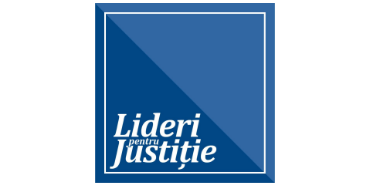An interim report issued last Monday by the European Commission criticized Romania for achieving little progress in the areas of judiciary reform and anti-corruption. Given a very low Corruption Perception Index of 3.7, roughly half the average of the European Union Member States, and a declining Global Integrity Index, with the largest implementation gap among her EU peers reviewed, Romania does have a problem with public confidence in reforms. In an ill-inspired statement two days later, PM Tăriceanu declared that Romania’s Cabinet cannot solve the problems raised in the EC report. Indeed, the decision-making powers in adopting the right solutions for mitigating/alleviating the European Commission’s concerns lay with bodies or institutions outside the executive branch of government. But Tăriceanu’s statement, especially as it comes after the CoSP failing to act decisively, sends the wrong signal to networks of corruption and organized crime potentially operating in and out of Romania.
In what regards delivery of convincing results, namely corrupt public officials finally being convicted and serving time behind bars, the Anti-Corruption Prosecution is independent from the Executive, and so are the judges. The only decision-making body that could provide momentum in actual law-enforcement for prosecutors and/or speedy adjudication for judges is the Superior Council of Magistracy—CSM. In spite of Tăriceanu’s frustration with not having a justice minister since early December, a new minister would have little influence over CSM decisions as long as the judiciary’s ruling body, in and of itself, seems to be at odds with the law. Hence, what the Cabinet could do, in order to avoid triggering the EU safeguard clause against Romania before July, would be to stop whining and look into already explored venues for adopting new legislation concerning CSM, for expediting corruption trials and for providing a coherent strategy to Romania’s judiciary. Of course, that would mean (for EU officials included) to acknowledge that stability of legislation now is more of an obstacle than a smooth path 🙁
The National Integrity Agency—ANI has a similar story. Initially offered by the Romanian Government, in 2004, to iron out the negotiations concerning Romania’s accession to the European Union, ANI is also meant to transpose and implement UNCAC provisions concerning the prevention of conflicts of interests, the declaration of assets and interests, the investigation of illicit enrichment (and/or unjustified wealth), as well as the subsequent recovery of assets that qualify as proceeds of corruption offenses. But, while the legislation establishing ANI was adopted as late as May, June and December 2007, criticized delays in the operationalization of the Integrity Agency refer primarily to the incapacity of the National Integrity Council to recruit and hire a President for ANI. The Council–subordinated, if at all, to the Senate, not the Executive–is currently running the third round of selection, but cannot be responsible for the poor professional quality of the candidates. [While the Agency still has no inspectors hired, the selection rules and timeline are now adopted, since the Council’s meeting on 7 February.] Once again, if the third round for the selection of ANI‘s President fails, the Cabinet should look into the possibility of modifying the law and appointing an interim President directly (most probably from within the ranks of civil society)–otherwise, the July EU report would have to register yet another breach of faith 🙁
Under these circumstances, with elections knocking on the door, the Cabinet has little time to turn around public perceptions about corruption, legislation and judiciary. Not just because of EU pressure over the safeguard clause, not necessarily because of international engagements under UNCAC and/or other treaties, not even for prospects on re-election… But to the benefit of the Romanian people–that likes whining, but hates whiners–simply because it’s been waiting far too long for genuine rule of law, improved quality of life, and concrete steps in the direction of durable development. And if you think I’m off-base, take another look at UNCAC‘s statement of purpose in article 1: “To promote integrity, accountability and proper management of public affairs and public property.”






